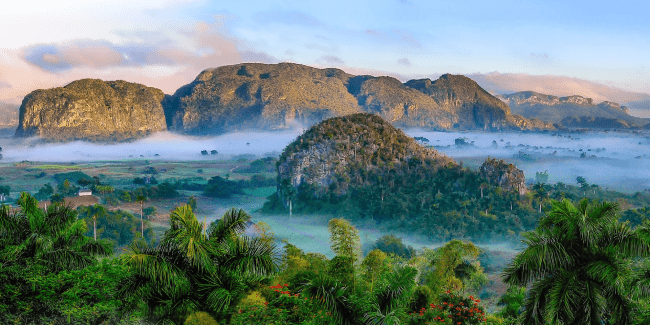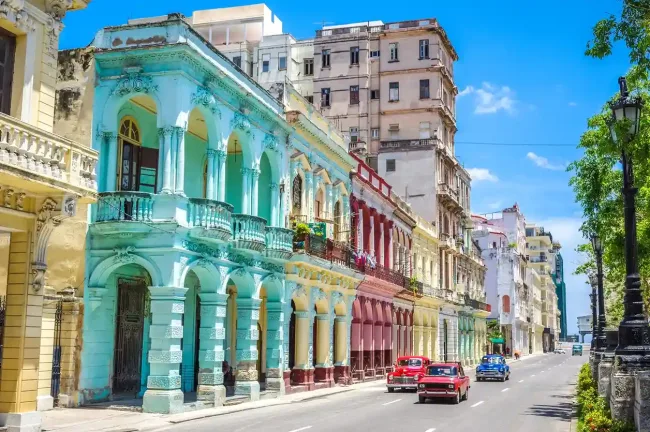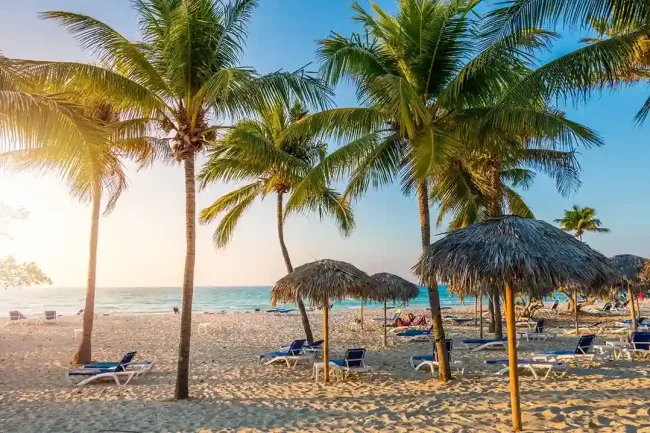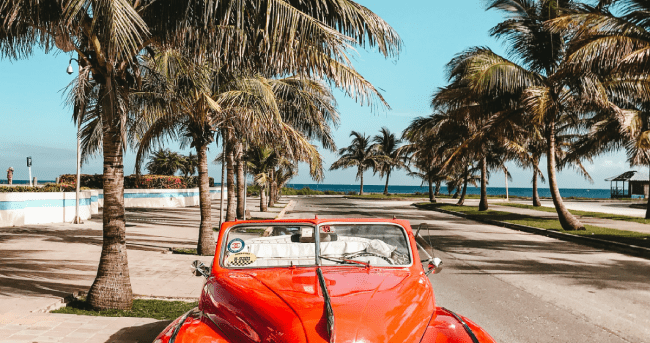
Welcome to Cuba
Traveling to Cuba? You may need a visa – find out if you do, which type, and how to apply so you can get the paperwork out of the way and focus on your trip.

What’s a Cuba Tourist Card (Tarjeta de Turista) and who’s it for?
Who’s the Cuba Tourist Card for?
Travelers from most countries must purchase a Tourist Card (Tarjeta de Turista) before arrival.
-
Those who enter Cuba from non-US airports must purchase a “Green Tourist Card”.
-
Those flying directly from the United States to Cuba must obtain a “Pink Tourist Card” and complete an affidavit form.
Who isn’t eligible for the Cuba Tourist Card?
Travelers from the following countries are not eligible to get a Tourist Card, and must apply for a Cuban Visa instead:
Afghanistan, Bangladesh, Cameroon, Eritrea, Ethiopia, Ghana, Guinea, Haiti, India, Iran, Iraq, Kenya, Nepal, Nigeria, Pakistan, Philippines, Sierra Leone, Somalia, Sri Lanka, Syria, Uzbekistan, and Yemen.
However, they can travel to Cuba with a tourist card if they also hold a valid visa or permanent residence permit issued by Canada, the United States, or an EU member state.
This info can change over time, so always double-check the requirements at the Cuban Embassy or Consulate.
What’s the purpose of a Cuba Tourist Card?
Tourism only. This document is often called a tourist visa, and while it serves a similar purpose, it does not require an application at the embassy before your visit, unlike other Cuban tourist visas.
How long can you stay with a Cuba Tourist Card? A tourist card can be used to grant one stay of maximum 90 days.
We currently don’t offer the Cuban Tourist Card at iVisa. For more info on how to apply, contact the nearest Cuban Embassy or Consulate. US airlines can offer guidance on purchasing the Pink Tourist Card, which is required for all direct flights from the US to Cuba.
What’s a Cuba Visa and who’s it for?
Who’s the Cuba Visa for? Travelers from:
Afghanistan, Bangladesh, Cameroon, Eritrea, Ethiopia, Ghana, Guinea, Haiti, India, Iran, Iraq, Kenya, Nepal, Nigeria, Pakistan, Philippines, Sierra Leone, Somalia, Sri Lanka, Syria, Uzbekistan, and Yemen.
Who isn’t eligible for a Cuba Visa? Visitors from the above countries don’t need a visa (only a tourist card) if they hold a valid visa or permanent residence permit issued by Canada, the United States, or an EU member state.
What’s the purpose of a Cuba Visa? Tourism.
How long can you stay with a Cuba Visa? The max. stay depends on your nationality.
We currently don’t offer this visa at iVisa. We recommend checking the validity and eligibility at the nearest Cuban Embassy or Consulate in your home country.
What are Cuba’s long-term visa options?

Cuba offers several long-term visa options for various purposes, such as employment, study, business, and residence.
At iVisa, we don’t currently offer these visas, but you can find more info at your nearest Cuban Embassy or Consulate.
Staying healthy in Cuba: Here’s what you need to know
Cuba is known for its high standard of healthcare, with a good ratio of doctors to the population. However, health facilities may vary in quality. Here's what travelers should know.
Make sure to stay updated on routine vaccines
-
Keep updated with Cuba's COVID-19 requirements, such as quarantine, testing, or vaccine certificates, through your airline or the Cuba government website.
-
No specific vaccinations are required for entry into Cuba (as of the last update), but it's wise to be current on routine vaccines.
-
Consider vaccines for hepatitis A and typhoid, as these can be contracted through contaminated food or water.
Medical facilities
-
While hospitals in major cities are generally well-equipped, facilities in rural areas might be more basic.
-
Pharmacies in Cuba can have limited stock and may not carry all medications commonly available elsewhere. It’s advisable to bring sufficient quantities of any medications you might need.
-
Travelers should be prepared to pay for medical services upfront, even if they have travel health insurance. It’s essential to keep all receipts to file a claim later.
-
There are international clinics in Havana and other major cities catering specifically to foreigners, offering a higher standard of care and English-speaking staff.
Health insurance
We’d always recommend taking out health insurance before you travel anywhere from any destination.
Private healthcare is available in Cuba, but make sure your travel insurance covers the high expenses for these services, and make sure you can pay for these services upfront (to claim back later).
Contact your insurance provider before traveling to make sure you have the right level of coverage.
Other things to consider:
-
Trip cancellation, delay, and interruption benefits.
-
Medical expenses and medical evacuation benefits.
-
Baggage coverage.
Things to be aware of when visiting Cuba
Keep an extra eye on the following to keep healthy and safe during your trip to Cuba:
1. Sun exposure: Protect yourself from the sun with a high SPF sunscreen, a hat, and sunglasses. Stay hydrated, especially in the Cuban heat.
2. Water and food safety: Drink only bottled, boiled, or treated water and avoid ice cubes, and eat well-cooked meals, avoid raw vegetables and peeled fruits.
3. Weather: Cuba is prone to hurricanes from June to November. Monitor local and international weather updates, follow local advice, and have an evacuation plan.
Medication for personal use
Follow these tips to bring into Cuba some over-the-counter medicines:
-
Declare all medications: Report all medication for personal use to customs authorities.
-
Original packaging: Always keep medicines in their original containers and transparent bags in your hand luggage.
-
Prescription or doctor's letter: Present the medical prescription issued by your doctor or other competent authority, in English.
-
Check for restrictions: Call Cuba's Embassy to verify that all of your prescriptions are legal to bring with you.
-
Quantity aligned with itinerary: Bring only a reasonable quantity that aligns with the duration of your stay to avoid complications.

 India Visa
India Visa
 Turkey Visa
Turkey Visa
 United States Visa
United States Visa
 Australia Visa
Australia Visa
 Colombia Visa
Colombia Visa
 New Zealand Visa
New Zealand Visa
 China Visa
China Visa
 Egypt Visa
Egypt Visa
 Vietnam Visa
Vietnam Visa
 Indonesia Visa
Indonesia Visa

